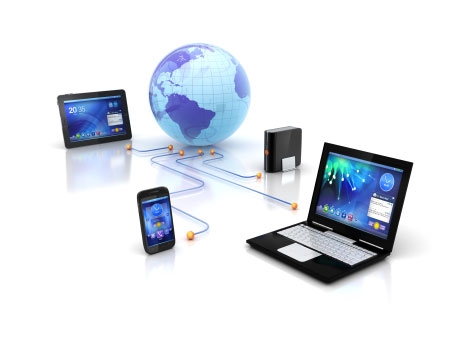In a further attestation of Qatar’s emergence as a regional knowledge hub, the country’s booming technology sector grew to QR15.5bn in 2011, posting an average annual growth of 17% in the last five years, a new report has shown. The information, communication and technology (ICT) sector accounted for about 1.6% of Qatar’s overall GDP in 2011, up from 1.2% in 2008, the “2011 Annual Report” released by ictQATAR showed.
Qatar’s ICT sector grew to QR15.5bn in 2011
Recently, Qatar witnessed major investments into its ICT sector from large global firms such as ExxonMobil, GE and Microsoft. “This type of success has led to the recognition of Qatar as a regional technology hub, which, in turn, is promoting further investment in the local ICT market,” ictQATAR said.
A growing number of people from all sectors of society are adopting ICT in their lives, the report shows.
By 2011-end, 89% of households and 87.4% of individuals in Qatar’s households had a computer, up 18% and 17% respectively from 2008. Broadband usage has increased tenfold over the same time period, to 68% of households.
Qatar’s active mobile penetration now stands at 135% – well above the 116% average for developed nations
The government continues to lead the way in driving ICT usage in the country, the report says.
The public use of the growing number of i-Gov services increased 14% in 2011, to more than 2.5mn transactions such as obtaining a passport, paying parking tickets or performing any other of the 98 e-services now available through Hukoomi – Qatar’s e-government portal.
In recognition of such efforts, in 2012 Qatar’s standing on the United Nations e-government index – a measure of ICT readiness as well as infrastructure and human resource development – jumped to 48 out of 190 countries, up from 62 in 2010.
The number of government and private sector employees taking online courses to enhance their careers through Qatar’s learning portal reached 5,000 in 2011.
Market liberalization resulted in healthy competition
The ongoing telecommunications market liberalization has resulted in healthy competition that helps local businesses as well as individual consumers enjoy benefits such as lower prices and a greater variety of products and services with user-friendly terms and conditions.
In 2011 ictQATAR advanced its goals by improving connectivity, boosting human capacity, fostering economic development, enhancing public service delivery and advancing societal benefits.
This momentum did not go unnoticed across the region, as Qatar now ranks second out of all Arab nations on the International Telecommunication Union’s (ITU) ICT Development Index with its standing improving to 44 out of 152 countries in 2011.
Furthermore, in the World Economic Forum’s Networked Readiness Index, which measures a nation’s capacity to fully benefit from new technologies in terms of economic competitiveness, citizens’ daily lives and overall social growth, Qatar ranked 28 out of 142 developed and developing countries in 2011.
Gulf Times
6 September

























































